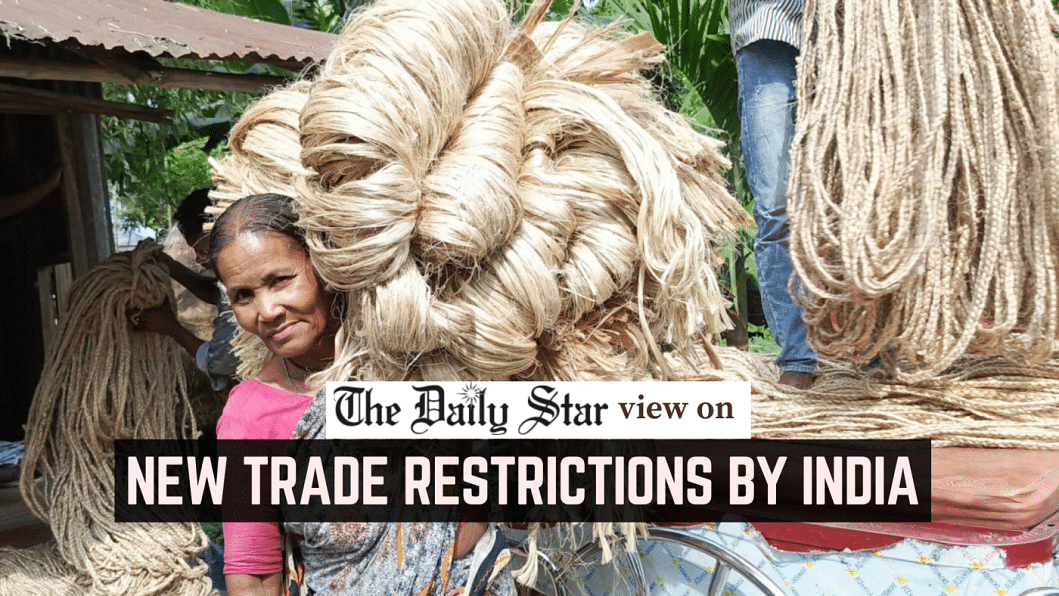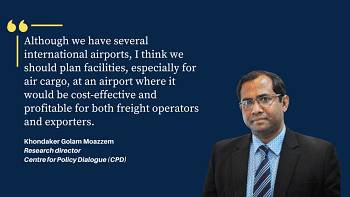A troubling trend in relations emerging

It is difficult to imagine how the strained India-Bangladesh relations can improve with India continuing to hint at its desire to do otherwise. India's recent decision to ban the import of certain jute products and woven fabrics from Bangladesh via land ports follows a series of measures that appear to be further distancing the two countries in terms of trade engagement—developments that will undoubtedly affect overall bilateral relations.
According to a new notification from the Indian Directorate General of Foreign Trade, several Bangladeshi products will now be subject to new port restrictions. These include jute products, flax tow and waste, jute and other bast fibres, single flax yarn, single yarn of jute, multiple folded, woven fabrics or flex, and unbleached woven fabrics of jute. The import of these items from Bangladesh will no longer be permitted through any land port along the India-Bangladesh border; instead, they will only be allowed entry via the Nhava Sheva seaport. These port restrictions, however, will not apply to Bangladeshi exports to Nepal and Bhutan transiting through India.
In May, India had already imposed restrictions on the import of garments, agro-processed foods, furniture, and other goods from Bangladesh through land ports. The export of garments—the single largest category of Bangladeshi exports to India—was limited to entry through two seaports: Kolkata and Nhava Sheva. Reportedly, this change was introduced without any formal prior communication from Delhi. It followed India's earlier decision in April—again, without advance notice—to suspend transshipment facilities for Bangladeshi cargo bound for third countries via Indian land borders, raising concerns about a tightening trade regime.
Bangladesh, for its part, blocked Indian yarn imports on April 13 through the Benapole, Bhomra, Banglabandha, Burimari, and Sonamasjid land ports. The justification provided was the need to protect the domestic textile and spinning industries from Indian raw material imports.
For decisions that impact millions of dollars in trade and the livelihoods of exporters and importers on both sides, such a lack of engagement and transparency is unbefitting of neighbours with closely interlinked economies. Even if such restrictions are genuinely necessary, they should be introduced through proper dialogue, with clear intent and phased implementation, to minimise harm to either—or both—parties.
The absence of communication, and the pattern that is emerging, suggest that these decisions are being driven more by political messaging than by economic rationale. This, inevitably, will affect bilateral relations. With the global economic order undergoing significant disruption, both countries must ask themselves whether damaging trade and mutual relations is truly in their best interest—or whether, in doing so, they are simply shooting themselves in the foot.

 For all latest news, follow The Daily Star's Google News channel.
For all latest news, follow The Daily Star's Google News channel. 










Comments